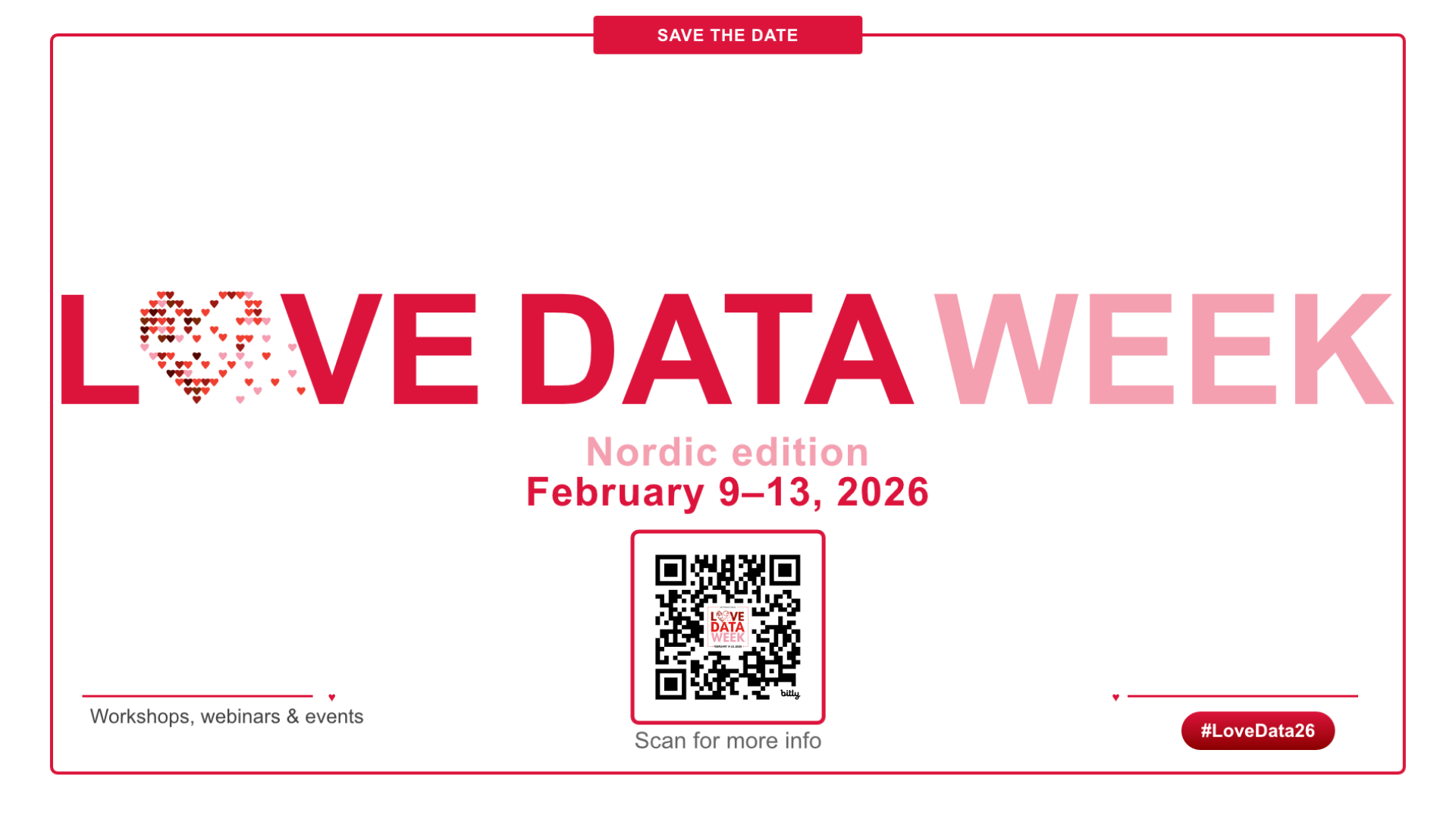Open Access - UB
Open science at NTNU
Openness throughout the research process is of central at NTNU. Open Science adheres to the scientific ideals of knowledge as a common good, independent, reproducible research and organized skepticism, and contributes to fulfilling NTNU's vision of knowledge for a better world.

Love Data Week - Nordic Edition Feb 9 - 13
For the very first time, Nordic universities are joining forces to bring you a Nordic Edition of Love Data Week. Join us for a series of webinars and events that aim to promote awareness and best practices about research data management, data sharing, and data literacy.
All webinars will be held in English. No registration is required.
Practices and guidance at NTNU
Open access publishing
Open access publishing
All NTNU publications must be open access, as stated in the Policy for Open Science.
See how to publish with open access at NTNU. Read more about Open Access publishing at NTNU. See also our flowchart for how to publish with open access.
Open research data
Open research data
Research data at NTNU should be managed according to best practice and be as open as possible and as closed as necessary. Data containing personal information must be processed according to GDPR and NTNU guidelines.
All research projects at NTNU should develop a Data Management Plan describing how the research data will be managed.
Research data at NTNU can be published and shared openly in our repository for research data, NTNU Open Research Data.
Open source
Open source
Source code and software developed in research projects and other academic activities, should be included as a part of published research results.
Together with publication of research data, this facilitates testing and validation of analyses and models, and enables reuse and further development of the code or software.
Many aspects of best practice for research data management are applicable to source code. This includes versioning, documentation and metadata ensuring research output that is as FAIR, open and reproducible as possible. Nevertheless, there are some considerations and practicalities that are specific for source code, including licensing.
Open learning resources
Open learning resources
To store and share digital learning resources, NTNU offers a cloud-based service that makes it easy to use the same learning resources in several places, across subjects, programs, systems and institutions. The system used is DLR and is provided by Sikt.
Sharing digital learning resources
Other open science practices
Other open science practices
Open science concerns the entire research cycle, from pre-registration via open methods and analysis to open access and peer review. Here is an overview of some relevant practices and resources.
Pre-registration involves specifying your hypotheses and study design before your research is carried out. Pre-registration has a long history in medical research and is mandatory for clinical trials in the EU (this can be done at Clinicaltrials.gov). However, the practice is also becoming common in other fields of research. AsPredicted and the preregristration service from the Open Science Framework (OSF) are two generic repositories where you can pre-register your study. Registered reports is a type of preregistration where the study protocol undergoes peer review at a journal. If the protocol passes the review, the journal promises to publish the resulting paper, regardless of the results. The Centre for Open Science maintains a database of journals that have adopted Registered Reports.
Preprints are scientific manuscripts that are publicly shared via preprint platforms before peer-review and publication (remember to check first that the policy of your target journal allows for the sharing of preprints!). To find a preprint platform relevant for your subject area, you can search the Directory of Open Access Preprint Repositories.
Interactive notebooks, such as the Jupyter Notebook, are web applications for creating and sharing interactive notebooks. JupyterHub is a multi-user server that allows users to access and run Jupyter Notebooks through a web browser. Students and staff at NTNU have access to NTNUs JupyterHub that can be used for teaching and research.
Electronic Lab Notebooks (ELNs) are a digital alternative to the traditional paper-based lab notebook with enhanced functionalities. These include searchability, structuring and documenting experiments, co-authoring, access control, version control, addition of metadata, efficient use of protocols, etc. At NTNU, RSpace has been selected as the common solution for ELNs. Read more about the implementation of electronic lab journals at NTNU.
Citizen science involves engaging and involving people who do not have a background in research, in collaboration with researchers or research institutions. The involvement of different societal actors in research processes is still a relatively new field that is evolving. Selected resources below:
Open peer review aims to make the peer review process more transparent and accountable. It comes in many different forms and involves practices such as: authors and reviewers are aware of each other’s identity during or after the review process; review reports are published alongside the relevant article; the wider community is able to contribute to the review process etc. Open Research Europe is a publishing platform that supports Open Peer Review for all research funded by the European Commission.
Courses
Events
Networks
Research Data Alliance (RDA)
RDA is a global organization that works to enable open sharing and reuse of research data.
Information about the Norwegian node (NO-RDA)
The Norwegian Reproducibility Network (NORRN)
NORRN is a peer-led network that aims to promote and enable rigorous, robust and transparent research practices in Norway.
